On Wednesday 24 June at 15:00 CEST, join the ESA Clean Space Team live to understand the Agency’s approach to implementing the Eco-Design framework in space missions.
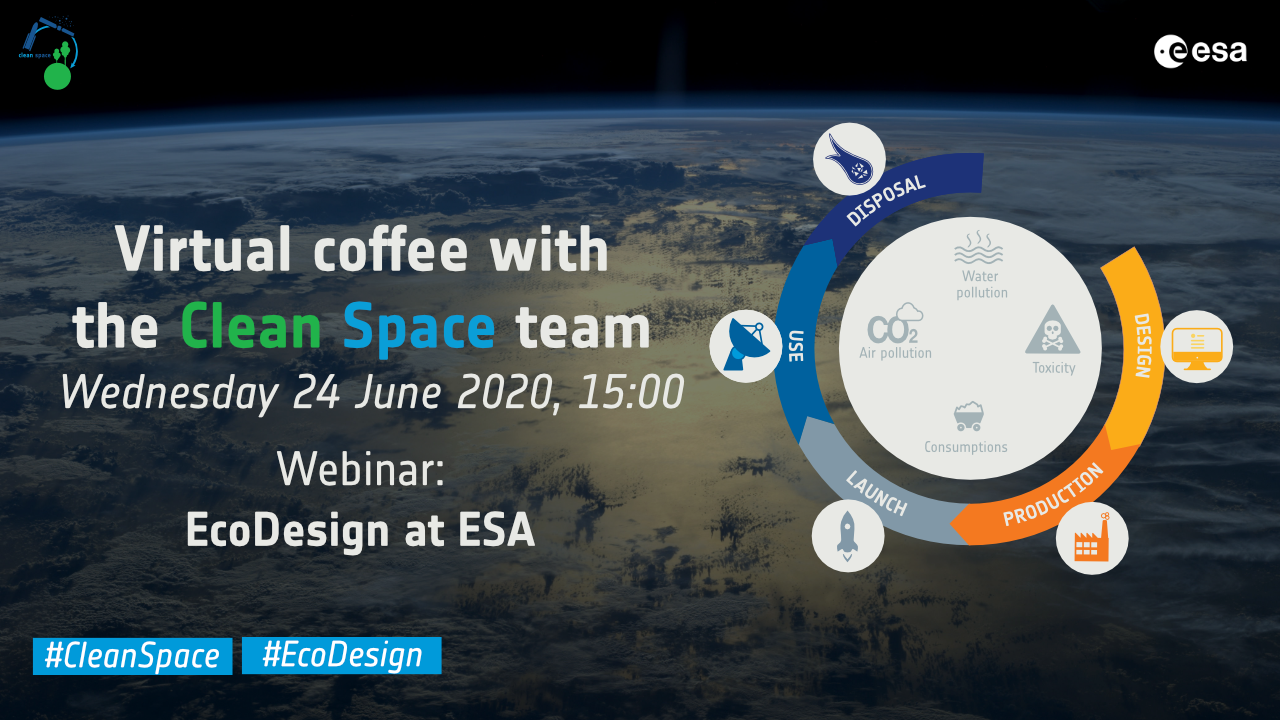
During this webinar, you will learn about the rationale behind EcoDesign for space. As part of the framework, the Clean Space team will highlight the ESA Life Cycle Assessment (LCA) handbook and database.
Clean Space aims to turn environmental challenges into opportunities for the European space sector, providing innovative solutions for tackling these challenges both on earth and in space. ESA is pioneering Eco-Design activities for the space sector by looking at the environmental impacts of its missions and fostering the adoption of greener technologies to mitigate these impacts. Over the past few years, environmental concerns have been constantly growing which has translated into increased public pressure and more stringent environmental legislation.
ESA applied the Life Cycle Assessment over the whole life cycle of space projects
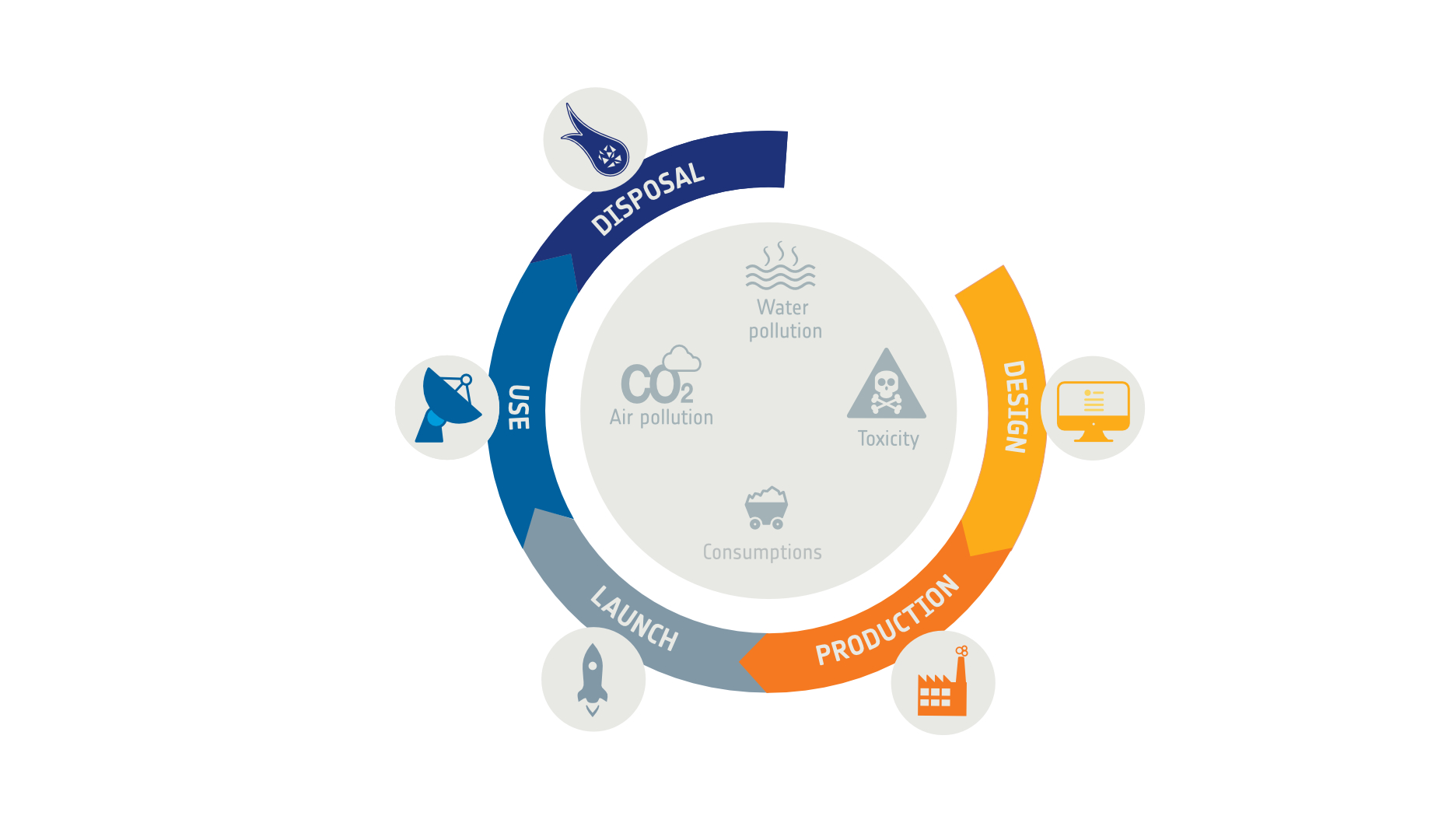
In order to better understand the environmental impacts of the space sector, ESA has successfully applied the ‘Life Cycle Assessment’ over the whole life cycle of space projects, from resource extraction through manufacture and use to end-of-life, covering all segments of the space mission: spacecraft, launcher, ground segment related activities. As a result, ESA is now following an Eco-Design approach to mitigate its environmental footprint by designing missions and technologies in a more environmentally friendly way without affecting the performance of the space mission.
In developing the Eco-Design process for space, ESA has established a space-specific LCA database and LCA handbook which will enable European industry to have a ‘first mover’ advantage in providing technical solutions to environmental legislation.
How to register
The Clean Space team would like to invite space agencies and industries to join this webinar on Eco-Design. Click on this link to register your participation before Monday 21 June 2020.
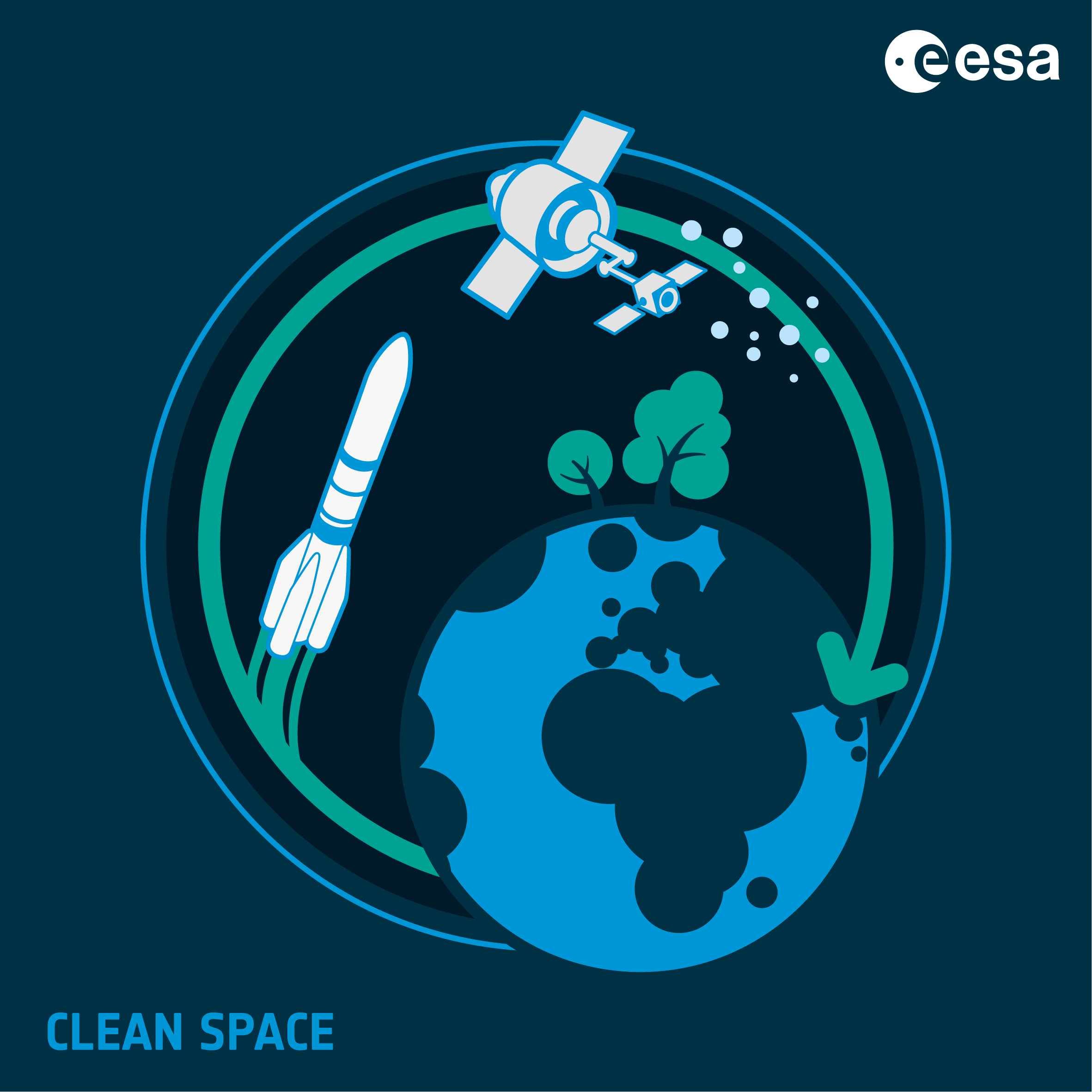

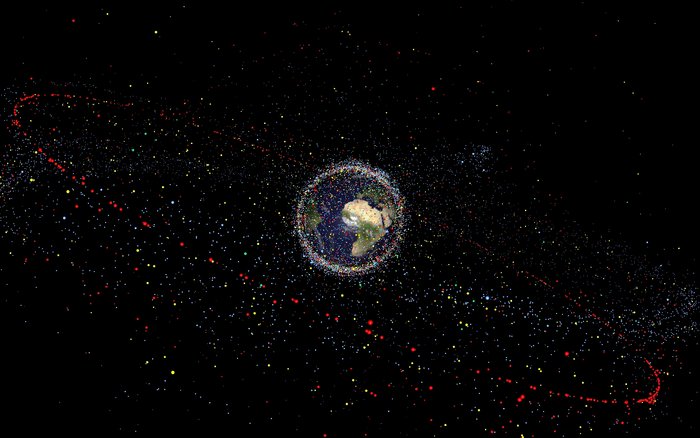
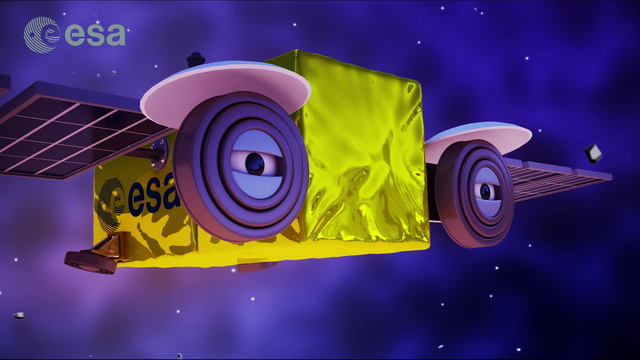
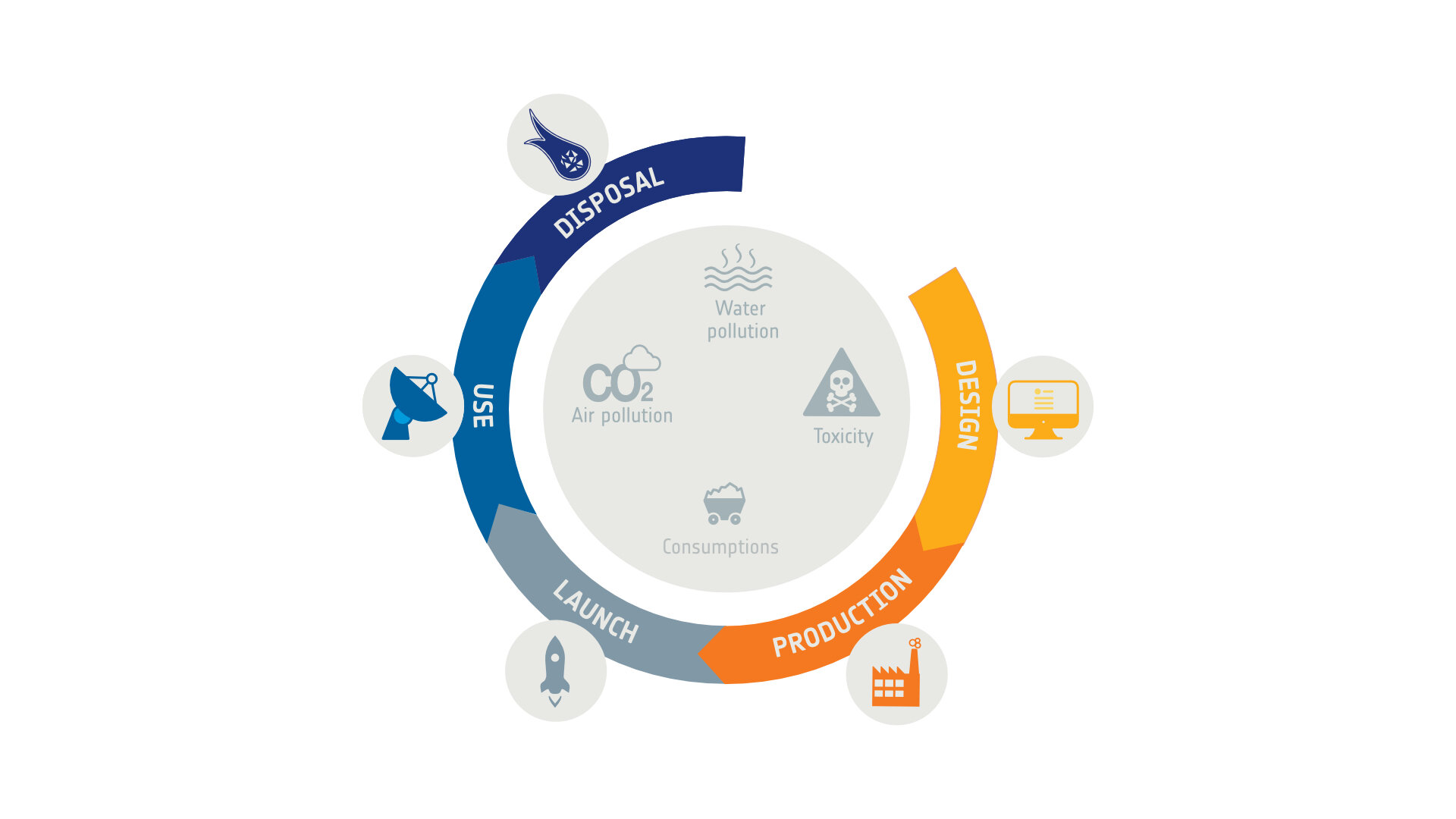
Discussion: 6 comments
Is there any eligibility criteria or is it open for all?
Dear Aaditya, the webinar is open to everybody. Looking forward to seeing you there next Wednesday :)
Put some thing in space we need used millions of euros. Now we want used an other millions to remove the satellite of the space. And in the future we will go use some millions to put an other satellite in space, and maybe the satellite use the same technology.
My idea is don’t deorbit the satellite, reuse than.
First they opened holes for us to store garbage, and now we reuse
For reuse you can put the satellite on orbit to the iss. And there can see what is wrong with the satellite
dear Bruno,
indeed, the reuse of old spacecraft (space debris) could turn a problem into a valuable asset! We study exactly this within one of our activity called OMAR (On-Orbit Manufacturing Assembly and Recycling). However, this is a challenging topic which will require several years of study before its is applied.
You may want to read this post to know more about recycling satellites
Have a nice afternoon,
Jessica
Hi! Congrats again for your work. I am so sad I lost this webiner. Would it be possible to access this information?
Dear André,
you can watch the recording of the webinar on YouTube: https://youtu.be/sNBYOmLAg6M
Enjoy and let us know what you think of it,
Jessica